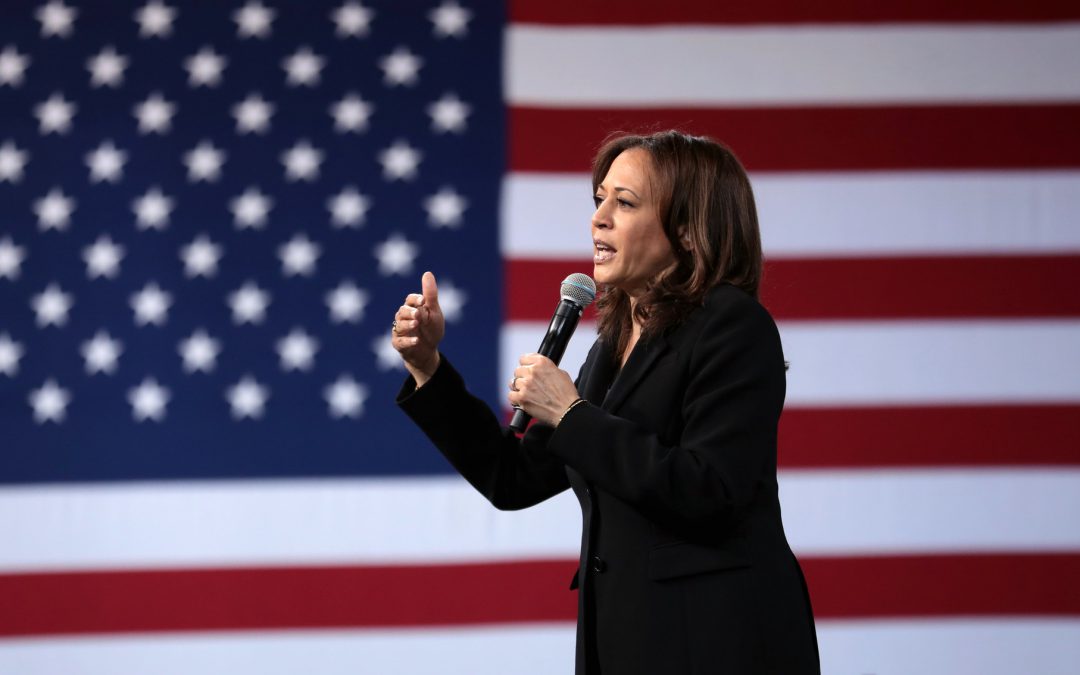WASHINGTON — Kamala Harris, the daughter of an economist from Jamaica and a cancer researcher from India, could help inspire younger women of color to aim for the White House in her historic nomination as the Democratic vice presidential nominee.
One role model can influence how the next generation sees leadership roles. Kristin Clarkson, a member of the historically Black sorority Alpha Kappa Alpha of which Harris is a member, explains that her stepson’s first memories of a president were of Barack Obama so he automatically assumes the president can look like him.
The 2020 election has the potential to have a similar impact on young girls.
“These little girls are going to see Senator Harris and say, ‘Oh! She ran for vice president. I can do that too,’” Clarkson said.
Before becoming former Vice President Joe Biden’s running mate, Harris was already breaking glass ceilings. She was the first woman and the first African American to serve as the attorney general of California. She also became the second Black woman and first South Asian American to be sworn in as a United States senator.
Her parents met as activists in the civil rights movement when they were students at the University of California, Berkeley. Harris received her bachelor’s degree from Howard University, a historically Black college in Washington, and her law degree from the University of California, Hastings College of Law.
Limited research indicates that having role models you can identify with can be an important factor in someone’s belief in their own ability to succeed. Georgia Southern University conducted a study on how the Obama presidency affected Black male high school students and, using a small sample group, found that “Obama’s election changed the way they perceived themselves as well as how they perceived the way the world sees African American males.” It found participants had more positive views of their own futures because of Obama’s leadership.
University of Minnesota communications professor Danielle Kilgo said that “representation takes something imagined and places it into reality.”
Harris is the third woman to represent a major party as a nominee for this position, following Democrat Geraldine Ferraro in 1984 and Republican Sarah Palin in 2008. She is representing a first for both the African American and South Asian American populations with her nomination.
Hope Goins, staff director of the House of Representatives Committee on Homeland Security, said it would be great to have a woman of color in one of the highest elected offices, but she hopes it inspires continued involvement from underrepresented groups at all levels of government.
Growing up as a Black woman in Mississippi, 39-year-old Goins said that there were never leaders that looked like her representing her state on the federal level or even on the city council, which reinforced an idea that positions like that weren’t open to people like her. She cites former Secretary of Labor Alexis Herman and former Secretary of State Condoleezza Rice as Black women in politics whom she could look up to.
“As diverse as America is and as welcoming as it claims to be, we should welcome representation,” Goins said. “When you get ready to write legislation that has to deal with children or Black people or Asians or women or anything, it’s probably best to have someone that’s familiar with that life.”
The Census Bureau estimates that women who identify as Black alone or in combination with other races represent 7.6% of the United States population. According to a report by the Center for American Women and Politics, less than 5% of officeholders elected to statewide executive offices, Congress and state legislatures come from this group.
Just 15 Black women have held statewide elected executive offices and there has never been a Black woman governor. Twenty-three Black women currently serve in Congress, including Harris in the Senate and 22 Black female representatives.
A record number of Black women are running for office in 2020.
Harris received media attention during the 2020 Democratic primaries when she brought a perspective that is often unrepresented to the forefront, “As the only Black person on this stage, I would like to speak on the issue of race,” Harris said during one debate.
During the same debate, Harris used her own experience in school integration programs to call out her Biden for his earlier opposition to busing.
She shared a powerful anecdote about a young girl who was a part of the second class to integrate schools and relied on busing. “That little girl was me,” she revealed.
Harris faces unique challenges in her political career as a woman, receiving criticism for being too ambitious. President and CEO of Alpha Kappa Alpha Sorority Incorporated, Dr. Glenda Glover, said Harris represents what their organization strives for, “When I see an ambitious Black woman we know we’ve done our job.”
Dr. Stephanie Myers, a member of Black Women for Biden, said Election Day will be emotional either way but a Biden-Harris win would fill her with pride.
“I would have to work to maintain my composure to keep from crying,” Myers said, referring to seeing a woman of color in one of the highest offices.

